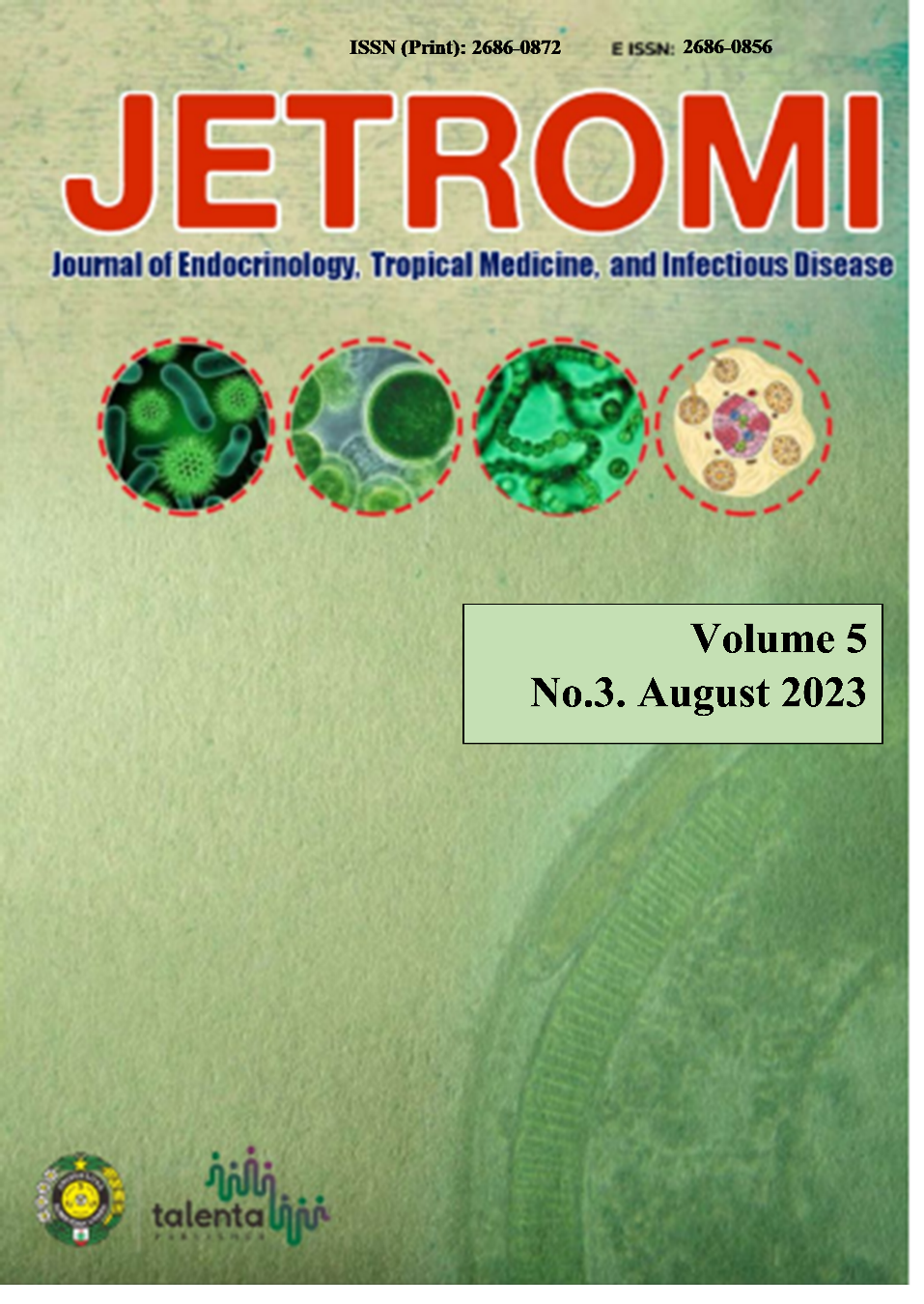Correlation between IgG Anti-Toxoplasmosis Gondii Antibodies and Cognitive Function in Human Immunodeficiency Virus-Acquired Immunodeficiency Syndrome (HIV-AIDS) Patients with Cerebral Toxoplasmosis
DOI:
https://doi.org/10.32734/jetromi.v5i3.12049Keywords:
Ig-G anti toxoplasma, cognitive function, Cerebral Toxoplasmosis.Abstract
Background: Patients with HIV-AIDS are at increased risk for both opportunistic infections, such as cerebral toxoplasmosis, and cognitive impairment. IgG anti-Toxoplasmosis gondii (T.gondii) is a marker for latent infection. However, its role in cognition in HIV patients remains unclear. The study aims to determine the correlation between Ig-G anti-T.gondii and each domain cognitive function in HIV patients with cerebral toxoplasmosis.
Method: This was a cross-sectional study involving 110 HIV patients with cerebral toxoplasmosis who met the inclusion and exclusion criteria. We assessed cognitive function using Montreal Cognitive Assessment Indonesian Version (MoCA-INA) and measured the IgG anti-T.Gondii using the ELISA method. The Spearman correlation test was used to determine the correlation between Ig-G anti-T.gondii with each cognitive domain.
Results: There was a significant correlation between IgG anti-T.gondii and cognitive function. (p = 0.004, r = -0.275). There was also significant relation between IgG anti-T.gondii with attention (p = 0.046, r =-0.19), abstraction (p = 0.036, r = -0.2), and delayed recall (p = 0.047, r =-0.19). But there was no significant relation between Ig-G anti-T.gondii with visuospatial (p = 0.171), naming (p = 0.521), language (p = 0.810), and orientation (p = 0.11)
Conclusion: Lower Level Of IgG Anti-Toxoplasmosis Gondii Antibodies Is Associated With Worse Cognitive Function In Human Immunodeficiency Virus-Acquired Immunodeficiency Syndrome (HIV-AIDS) Patients with Cerebral Toxoplasmosis
Downloads
Downloads
Published
Issue
Section
License
Copyright (c) 2023 Journal of Endocrinology, Tropical Medicine, and Infectious Disease (JETROMI)

This work is licensed under a Creative Commons Attribution-NonCommercial-ShareAlike 4.0 International License.
The Authors submitting a manuscript do so on the understanding that if accepted for publication, copyright of the article shall be assigned to Journal of Endocrinology, Tropical Medicine and Infectious Diseases (JETROMI).
Copyright encompasses exclusive rights to reproduce and deliver the article in all form and media. The reproduction of any part of this journal, its storage in databases and its transmission by any form or media, will be allowed only with a written permission from Journal of Endocrinology, Tropical Medicine and Infectious Diseases (JETROMI).








